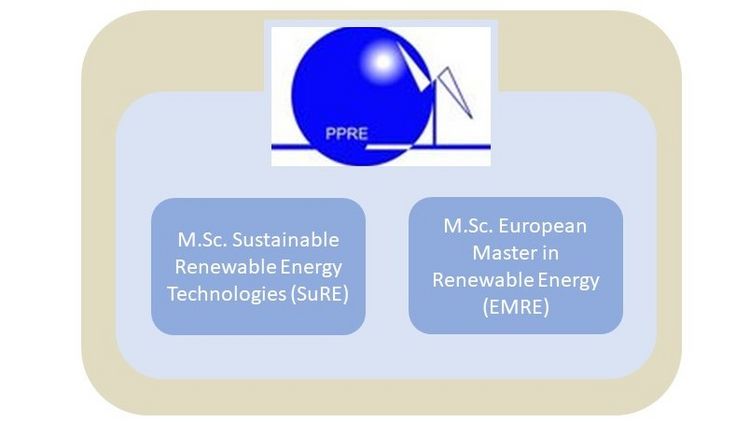The PPRE Master programme is over 30 years “old”. Through its “lifetime” it has experienced many evolutions and changes: from being 2, 3 and now 4 semesters long; from being taught in German to English; from having less than 10 students to more than 20. One of the latest changes in our master program is changing its name: the “PPRE” master degree will become M. Sc. in Sustainable Renewable Energy Technologies (SuRE)!
We would like to highlight that the curriculum and the profile of the master program is the same as it was in the previous years. It is the same master degree programme. Changing the name in this case is not changing its identity and distinct characteristics! It rather aims at supporting it and to making it more clear. Besides, PPRE will continue being the Team and organization of our both Postgraduate Programmes in Renewable Energy!
One of the reasons that motivate its name change is to highlight more prominently the different profiles between the two master degree programmes that our group within the University of Oldenburg offers. Besides the master degree SuRE (former PPRE ;-D) we also host the “European Master in Renewable Energy (EMRE)”.
One of the core differences among both programmes is the importance of interdisciplinary content in SuRE, which aims to work on a future-oriented implementation of renewable energies (RE). The SuRE masters programme includes two modules to support this objective: one in the field of sustainability and one in resilience assessment of RE implementation. Besides, students may choose among energy-related courses from other research disciplines and faculties at the UOl. The new name of the programme, thus, highlights the importance of such content within the master degree.
With this focus, together with the technical expertise, we want to keep on building and wide spreading knowledge on renewable technologies to be implemented sustainably and in a resilient manner, fostering the interdisciplinary view required for that. We aim to develop critical thinking towards the development of renewable energy technologies and their integration in the system, to understand the broader impact of technologies. We think that these perspectives are essential to be able to understand the impacts of technologies as there is no such thing as a “free-ride” in the energy transition. Technologies often claimed as “climate neutral” (e.g. biomass, CCS, nuclear power, blue hydrogen,…) are by far neither renewable nor sustainable. And even renewable energy sources come along with some detrimental impacts (environmental, social…) and, once in place, technology lock-ins will make any transformation more difficult.




